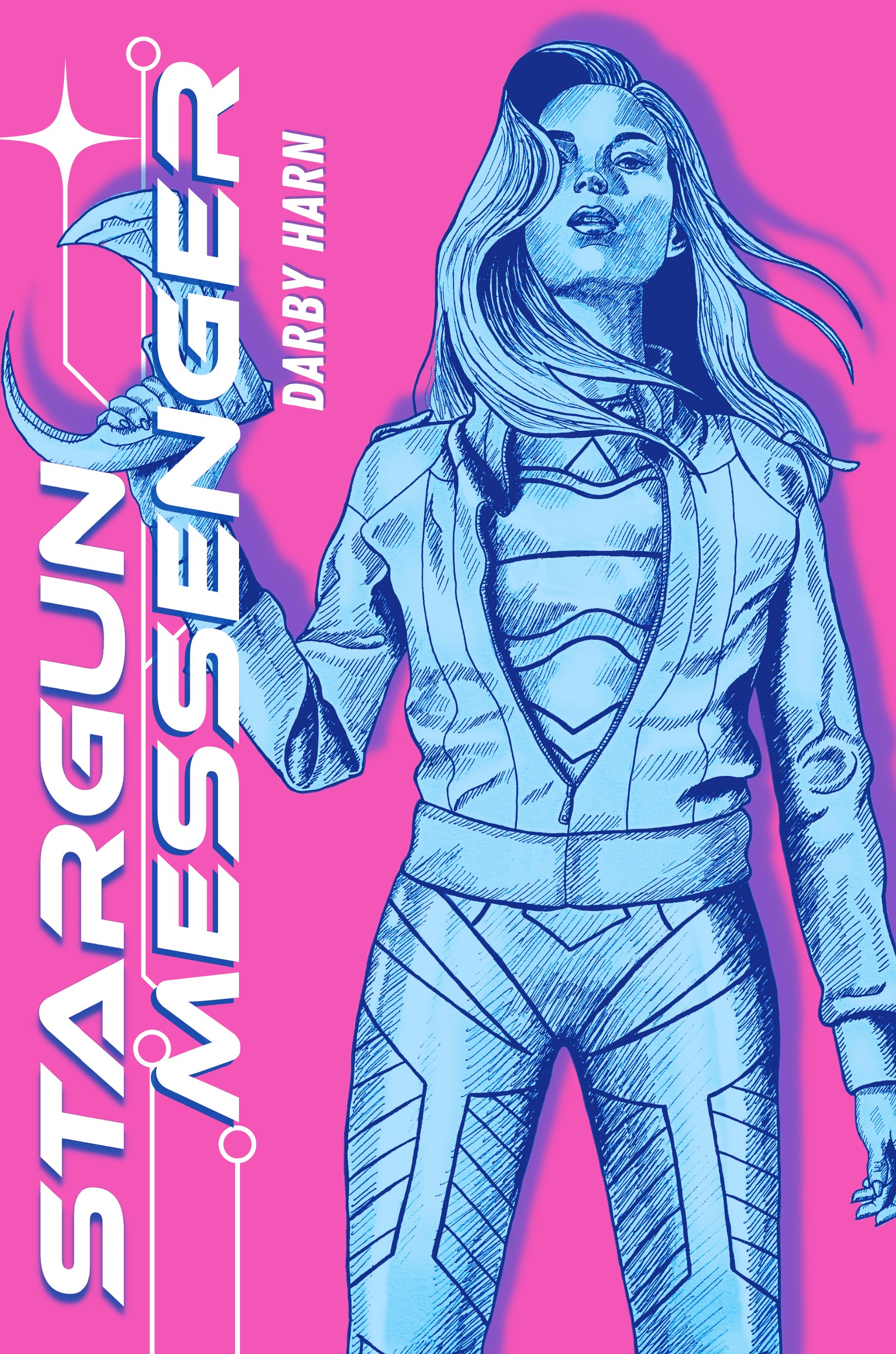
Synopsis
To save the stars, Astra Idari must outrun her own shadow.
Astra Idari is a mess. She’s an android who believes she’s human. She drinks too much, remembers too little, and barely pays for it all as a Stargun Messenger. She hunts down those who step filamentium, the fuel that allows for faster-than-light travel. When Idari meets Gen Emera, she meets the girl of her dreams and the last living star. There’s just one problem.
Filamentium is only found in the blood of living stars.
Everyone wields knives and justifications for butchering the living stars to get around, but once Idari knows the truth, she faces a stark choice. Either she turns Emera over to her employers who control the filamentium monopoly, or she risks everything to help Emera fulfil her quest to save her people.
Review
Have you ever wondered what the movie Stardust would be like if, instead of being set in a work of fairy tales, it were set in space and played out as a space-opera? Stargun Messenger is the answer to that question. It’s a sci-fi action adventure with a cracking love story at its heart between a machine who wants to be human and a living star.
There’s a lot to admire about the concepts and the execution here. For example, Astra Idari (the machine who wants to be human) is linked to a spaceship — in constant communication with the AI operating the ship. This means the ship can invade Idari’s thoughts whenever it likes, and so there’s almost a dual perspective to every chapter. We see things in first person from Idari, but there’s a conversational element to the description as the ship argues and banters with Idari about everything we’re discovering. This could easily become tiresome or confusing, and yet, there’s a great deal of depth, emotion, and humour added to the book because of it.
And the same could be said across the board for this book. Things which could confuse or bamboozle are clearly expressed. Themes are fully explored. And the action is consistent and high-octane.
My favourite aspect of Stargun Messenger was the characters — who they are and how they became that way. I really enjoyed the twists and turns of learning what’s driving these individuals, whether they’re a star looking to renew their shine, or a machine searching for their next supply of fuel. Individuality, acceptance, and choice are all included in the speculation of what makes us who we are, and these speculative elements felt like a real strength of the book.
There were times when repetition slowed the plot. And there are so many twists to keep track of, a few of them couldn’t help but feel a little telegraphed. However, the story never failed to entertain. And the secrets that came to light in the climax were definitely worth sticking around for.
Humour is another of the book’s strong points. There’s a Pinocchio-esque quality about Idari, and it reads as if the book is aware of how surreal that is, and it’s not afraid to dial it up. The humanity of Idari is not just in her emotions, but it’s in her humour. It’s in her forgetting as well as remembering. It’s in her secrets and it’s in her soul.
Oh, and did I mention there are pirates? Who doesn’t love space pirates, am I right?
Overall, Stargun Messenger is a fun and original idea that lights up the imagination in all the right ways. I’d recommend it for fans of celestial sci-fi who like their philosophy sprinkled with jokes. It’ll make you laugh. It’ll make you think. And it’ll leave you feeling entertained and empowered.







Leave a Reply